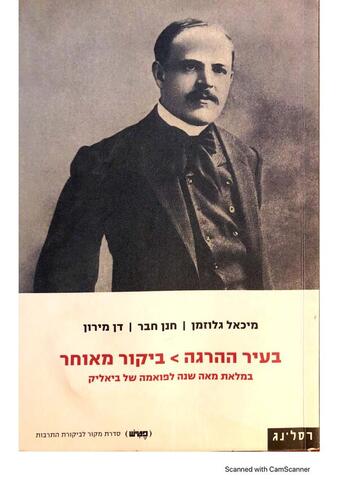
In Hebrew poetry, steeped in the communal, there is no work more classic than “In the City of Slaughter” (1903), H.N. Bialik’s work of poetic rhetoric and historical influence of immense magnitude. Its role in establishing the national Zionist ethos that is at the core of Israeli cultural identity to this day is enormous.
The life of a literary work is determined by the critical revisiting of later readers. The frequency, depth and thoroughness of the critiques as well as the cultural outlook of the critics and their ability to balance the traditional criticism of a literary work with allegiance to their own sensitivity – all these contribute to the longevity of the literary work. Critics are a part of the spiritual and cultural tradition dedicated to literature, most times honorably representing this community. “In the City of Slaughter,” written following the Kishinev Pogroms of 1903, often recited at ceremonies and memorials of other atrocities has been the focus of endless readings. This book is an attempt by three of the most prominent scholars of modern Hebrew literature today to read Bialik’s work afresh, as they remember later atrocities perpetrated by others against the Jewish people – but also, with courage, sincerity and integrity evincing their knowledge of atrocities perpetrated by their own people, and their homeland Israel, on others.